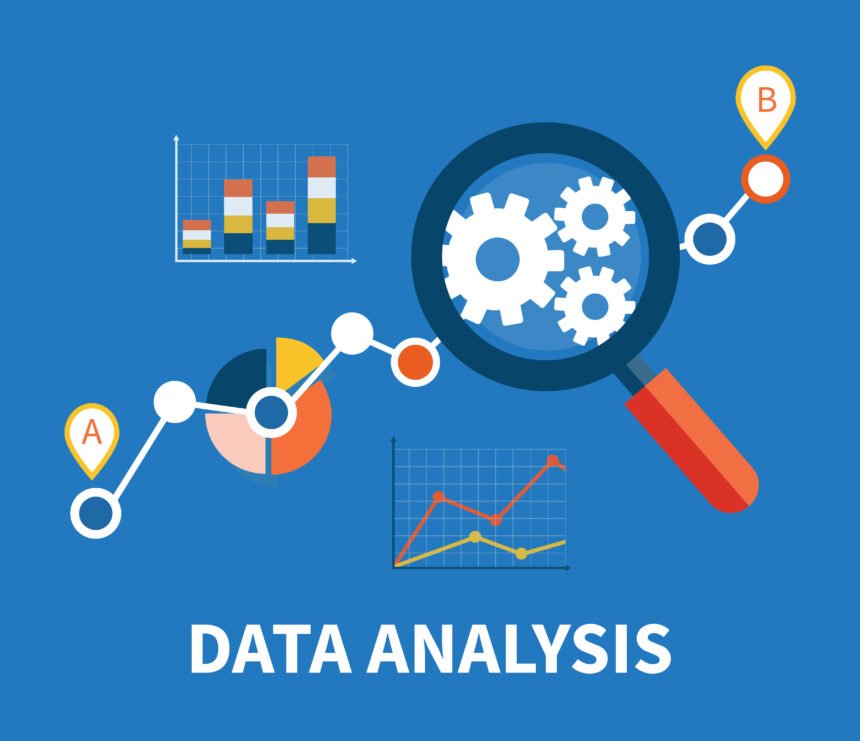Increase Efficiency and Productivity Via Information Analytics
In today's data-driven landscape, services are increasingly identifying the pivotal function of information analytics in improving functional efficiency and earnings. By systematically examining data, organizations can reveal important insights that notify strategic decisions, enhance processes, and tailor client experiences.
Understanding Data Analytics
In today's data-driven landscape, comprehending data analytics is necessary for organizations aiming to boost operational effectiveness and drive productivity. Data analytics includes the systematic computational analysis of information collections to uncover patterns, connections, and understandings that educate decision-making. By employing various methods, such as analytical evaluation, machine knowing, and predictive modeling, companies can change raw information right into workable knowledge.
The procedure generally begins with data collection, where appropriate info is collected from multiple sources, including transactional databases, customer interactions, and market trends. This information is then cleaned and organized to ensure accuracy and consistency. Once the data is prepared, analytical devices and software are utilized to imagine the details and discover, making it possible for stakeholders to recognize abnormalities and patterns.
Eventually, understanding data analytics empowers companies to make enlightened choices based on empirical evidence instead than intuition. It assists in targeted methods that can enhance resource allocation, improve consumer satisfaction, and boost general efficiency. As companies increasingly recognize the worth of data-driven insights, a solid grip of information analytics becomes an essential expertise for teams and leaders alike, placing them for sustained success in a competitive setting.

Trick Advantages for Businesses
Organizations that take advantage of information analytics can unlock a plethora of advantages that significantly improve their procedures and success. One of the key advantages is improved decision-making. Information analytics provides actionable understandings stemmed from real-time information, enabling businesses to make educated selections that align with market needs and customer preferences.

Additionally, data analytics fosters enhanced customer experiences. By understanding client habits and preferences, services can customize their offerings, causing boosted contentment and commitment. This personalized approach often results in higher conversion prices and repeat service.
In addition, information analytics allows companies to determine arising patterns and chances. By remaining in advance of the curve, organizations can profit from brand-new markets and advancements before their competitors.
Implementing Data-Driven Strategies
Effective application of data-driven techniques requires a thorough understanding of both business goals and available information sources. Organizations needs to first specify their goals plainly, making sure positioning between information initiatives and tactical purposes. This clarity makes it possible for groups to focus on pertinent metrics and insights that drive decision-making.
Top notch data is necessary for accurate analysis, as bad information can lead to misguided techniques and thrown away resources - Analytics. Organizations should develop procedures for data collection, cleaning, and administration to keep information integrity.
Additionally, cultivating a data-driven society is essential. Staff members in all levels need to be motivated to utilize information in their daily operations. Training programs and workshops can improve information proficiency, encouraging team to make informed decisions based on analytical insights.
Tools and Technologies Overview
A robust suite of innovations and tools is crucial for organizations intending to harness the full capacity of information analytics. These devices facilitate the collection, handling, and visualization of information, making it possible for businesses to derive actionable understandings.
At the fundamental degree, information administration platforms such as SQL data sources and NoSQL systems supply effective data storage and retrieval capabilities. For information handling and analysis, programming languages like Python and R, along with structures such as Apache Flicker, allow complicated computations and artificial intelligence applications.
Visualization tools, consisting of Tableau and Power BI, change raw information into intuitive visual styles, making insights available to stakeholders at all degrees. In addition, cloud-based platforms like Google Cloud and AWS provide scalable storage space and handling services, suiting the expanding volumes of information companies experience.
For advanced analytics, anticipating modeling and AI-driven options are progressively adopted, allowing business to forecast fads and boost decision-making processes. Incorporating these tools right into existing workflows is paramount; companies that successfully utilize this innovation can significantly boost operational effectiveness and drive success. Hence, buying the right devices and technologies is a critical necessary for any data-driven company.
Study of Success
Leveraging data analytics has led many companies to achieve amazing enhancements in performance and profitability. One noteworthy instance is a large retail chain that executed anticipating analytics to enhance supply monitoring. By analyzing historical sales data and customer trends, the business minimized excess stock by 30%, bring top article about substantial price savings and improved cash flow.
Another instance can be located in the production sector, where a leading automotive manufacturer utilized data analytics to improve its production processes. By keeping track of maker performance in real-time, the company identified bottlenecks and ineffectiveness, resulting in a 20% boost in general devices efficiency (OEE) This not only boosted production prices however likewise reduced downtime and maintenance costs.

These check my site situation studies show how information analytics can drive strategic decision-making, maximize procedures, and eventually enhance both effectiveness and success throughout various markets.
Conclusion
In verdict, the assimilation of data analytics into company operations provides considerable chances for improving effectiveness and earnings. By methodically assessing information, companies can determine ineffectiveness, enhance client experiences, and make educated choices.
In today's data-driven landscape, comprehending data analytics is crucial for organizations aiming to enhance functional performance and drive earnings. Data analytics involves the systematic computational evaluation of data sets to reveal patterns, relationships, and understandings that inform decision-making. his comment is here Data analytics gives workable insights derived from real-time information, enabling companies to make informed selections that line up with market demands and customer preferences.
Premium data is essential for exact analysis, as poor information can lead to misdirected approaches and thrown away resources. Organizations must develop processes for information collection, cleaning, and monitoring to preserve data honesty.
Comments on “Improve Customer Recognizing with Targeted Analytics Versions”